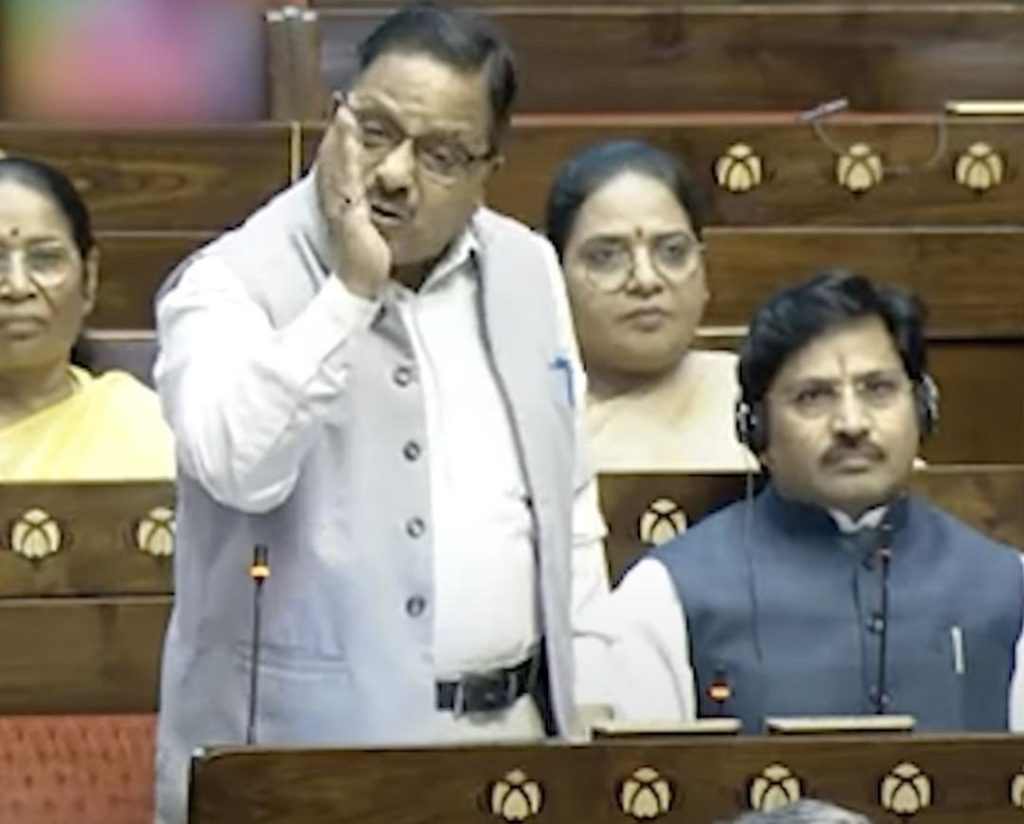
Should I Read the Quran and Tell You What’s Written in It: BJP MP Radha Mohan Das on Waqf Bill
In recent news, a heated discussion took place in the Indian parliament regarding the Waqf Bill, a proposed legislation aimed at governing the management of Waqf properties. During the discussion, BJP MP Radha Mohan Das made a provocative statement that sparked widespread debate and controversy. The MP asked if he should read the Quran and tell the public what is written in it, raising questions about the relevance of religious texts in political discourse.
The context of the statement was Radha Mohan Das’ criticism of the Waqf Board, which manages the properties donated by Muslim devotees for religious and charitable purposes. According to him, the Board has accumulated a significant amount of properties without maintaining proper records, leading to allegations of mismanagement and corruption. The MP argued that the Quran itself emphasizes the importance of maintaining written records, citing a specific verse that states that even if one rupee is given to anyone, there should be a written record.
Radha Mohan Das’ statement has sparked a range of reactions, with some interpreting it as an attempt to defend the Waqf Bill and others seeing it as an attempt to undermine Islamic practices. The MP’s comments have also raised questions about the role of religion in politics and the limits of religious expression in public discourse.
On one hand, Radha Mohan Das’ statement can be seen as an attempt to demonstrate the hypocrisy of the Waqf Board. By citing the Quranic verse, the MP is highlighting the Board’s failure to adhere to its own religious principles. This could be seen as a legitimate criticism, especially if the Board is indeed mismanaging its properties without proper records. However, some critics argue that the MP’s statement is an attempt to score political points by using religious rhetoric.
On the other hand, Radha Mohan Das’ statement has also been criticized for being misinformed and insensitive. The Quranic verse he cited is often interpreted as a reminder of the importance of honesty and transparency in financial transactions, rather than a specific instruction for maintaining records. Furthermore, some argue that the MP’s statement is an attempt to undermine Islamic practices and create unnecessary controversy.
The debate surrounding Radha Mohan Das’ statement raises important questions about the role of religion in politics. While religion can play a significant role in shaping individual beliefs and values, it is often argued that religious rhetoric should be kept separate from political discourse. The Indian constitution, for instance, guarantees freedom of religion and speech, but also emphasizes the importance of maintaining secularism and avoiding religious polarization.
In recent years, there has been a growing trend of religious polarization in India, with politicians using religious rhetoric to gain political advantage. This trend has led to increased tensions between different religious communities and has undermined the country’s secular fabric. The debate surrounding Radha Mohan Das’ statement is a reminder of the need to maintain a balance between religious freedom and secularism.
In conclusion, Radha Mohan Das’ statement about reading the Quran and telling the public what is written in it has sparked a heated debate in India. While the MP’s criticism of the Waqf Board may be legitimate, the statement has also been criticized for being misinformed and insensitive. The debate raises important questions about the role of religion in politics and the limits of religious expression in public discourse. As India continues to navigate the complexities of religious polarization, it is essential to maintain a balance between religious freedom and secularism, and to avoid using religious rhetoric to score political points.
News Source: https://www.youtube.com/watch






